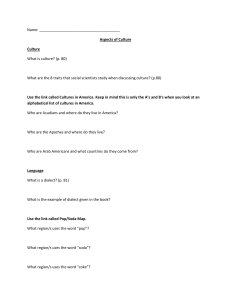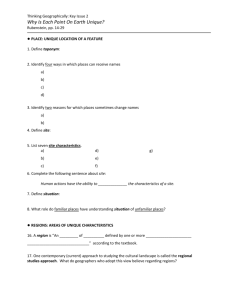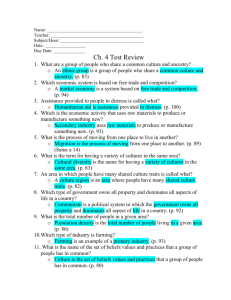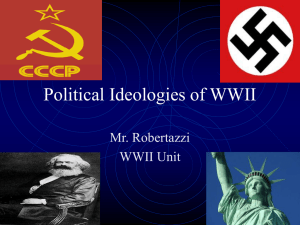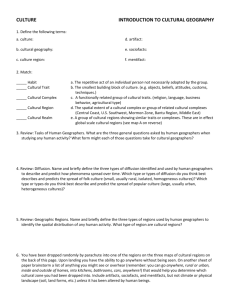The Worlds People
advertisement
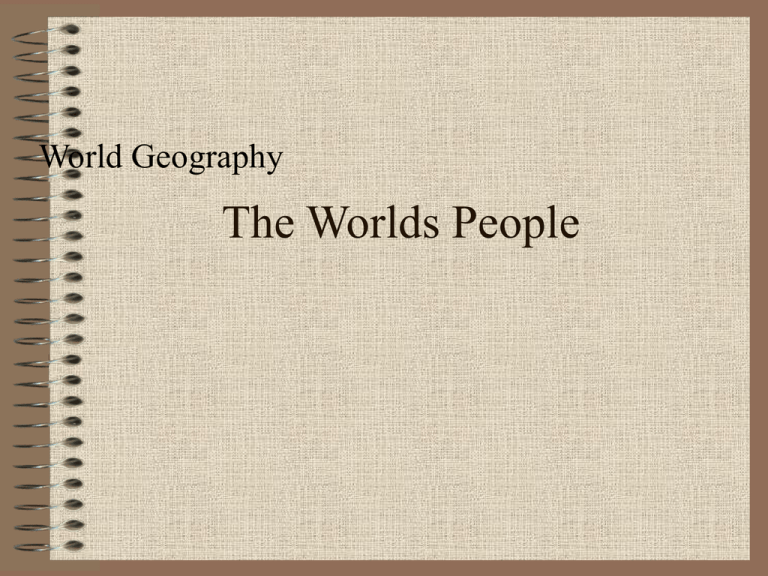
World Geography The Worlds People Major Themes • • • • Culture Population Government & Economy Global Connections Culture • Is the set of beliefs, values, and practices that a group of people have in common. – Language, religion, clothes, food – Culture may change overtime – How does culture change? Cultural Traits • Is an activity or behavior in which people often take part – Language, sports, how you eat Culture Groups • Culture Region – An area in which people have many shared culture traits.l – Language, religion, – Or lifestyle – Arab culture • Cultural Diversity – Ethnic Group: is a group of people who share a common culture and ancestry. – East Africa – Cultural Diversity: is the state of having a variety of cultures in the same area • United States Changes in Culture • Innovation: A new idea or way of doing something. – Contact with other people also promote changes in culture • Cultural Diffusion: The spread of culture traits from one region to another – Movement Main idea • • The study of population patterns helps geographers learn about the world Population statistics and trends are important measures of population change Population • The total number of people in a given area. – Population patterns help geographers learn about the world it is a very important part of geography – Population Density • A measure of the number of people in a living area. Persons per square mile. • Japan high rate of pop. Density • Australia low rat of pop. density Population • 3 key statistics • Birthrate – The annual number of births per 1000 people • Death Rate – The annual number or deaths per 1000 people • Migration – The process of moving from one place to live in another NATURAL INCREASE • Number of birthrate minus the death rate Main Idea • • • Governments of the world include democracy, republic, monarchy, dictatorship & communism Different economic systems exist throughout the world Geographers group countries based on their level of economic development Government & Economy • The worlds countries have different governments and levels of economic development Government • Democracy – Is a form of government in which the people elect leaders and rule by majority – Government by the people • Citizens choose the leaders • Elect members of congress, who make laws, and the president who enforces the law • Protects freedoms & rights of citizens United States • Constitution-based federal republic; strong democratic tradition Republic • Supreme power rests in the body of citizens – – – Head of State: President Citizens elect representatives Similar to Democracy • Ancient Greece & Rome Other governments • Monarchy – – Oldest type in the world Ruled directly by a king or queen • • • Saudi Arabia Some only king has the power Others are democratic monarchies – People have some say Dictatorship • Single, powerful ruler who has total control – Dictator • • Iraq Saddam Hussein People are not free Communism • • • • Political system in which the government owns all property and dominates all aspects of life in a country China Cuba North Korea Economy • Is a system that includes all of the activities that people and businesses do to earn a living. Economy • Traditional Economy – A system in which the people grow their own food and make their own goods Economy • Market Economy – Is a system based on private ownership, free trade, and competition. • Prices are determined by the supply and demand of the product Economy • Command Economy – A system in which the central government makes all economic decisions. • Goods, prices, and how much to make • Communism Economic Development • Gross Domestic Product (GDP) – Is the value of all goods and services produced within a country in a singe year. • Population– economist use population to determine GDP. Economic Development • Developed Countries – Countries with strong economies and a high quality of life • Examples????? • Developing Countries – Countries with less productive economies and a lower quality of life • Examples: Guatemala, Nigeria, Afghanistan Global Connections • Fast, easy global connections have made cultural exchange, trade, and a cooperative world community possible • Globalization – The process in which countries are increasingly linked to each other through culture and trade Global Culture • Popular Culture – Refers to the culture traits that are well known and widely accepted • Food, music, sports, and movies Global Trade • Interdependence – Is the source of reliance of one country on the resources and goods, or services of another country. – Automobile Industry World Community • United Nations (UN) – Is an organization of the worlds countries that promotes peace and security around the globe. • What kinds of conflicts would the UN work to solve? • Humanitarian Aid – Assistance to people in distress • Red Cross Questions Comments
